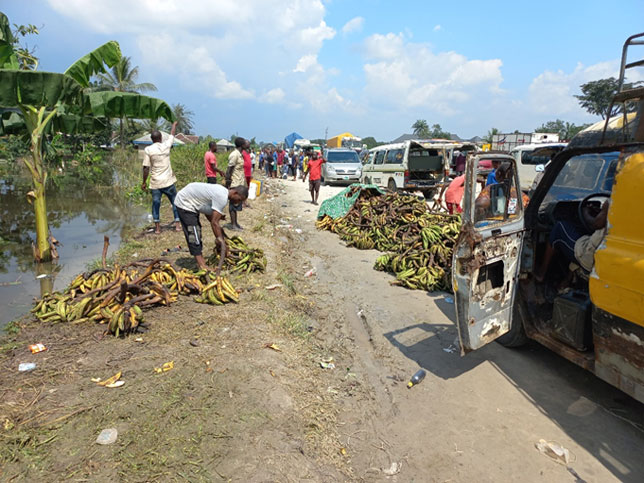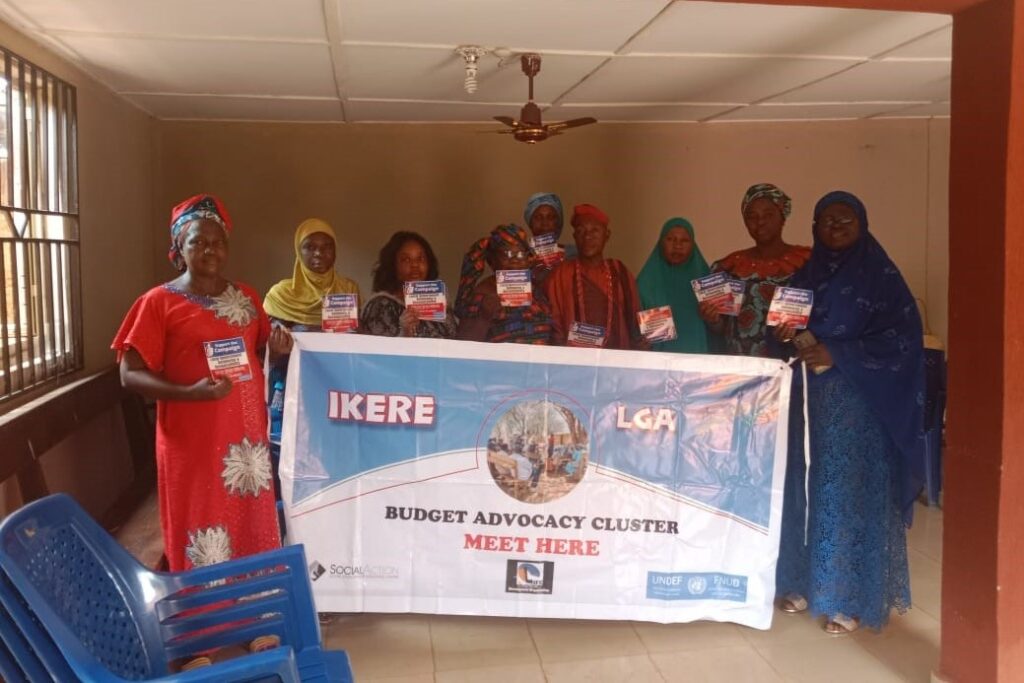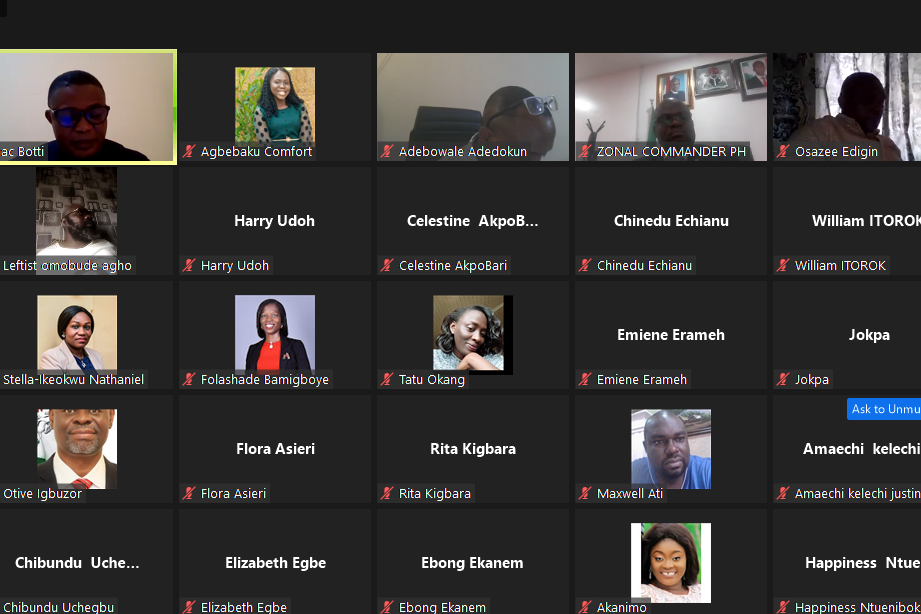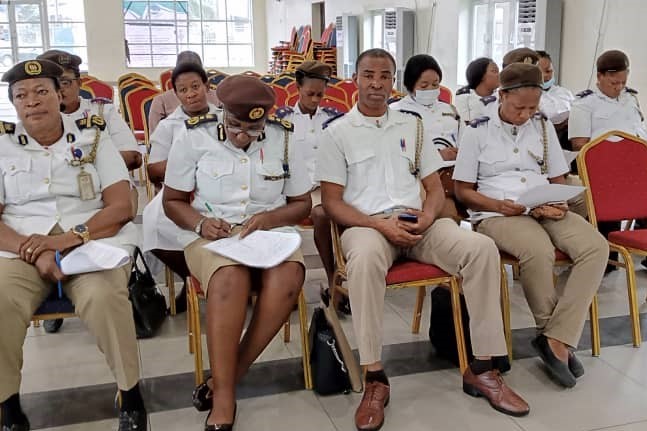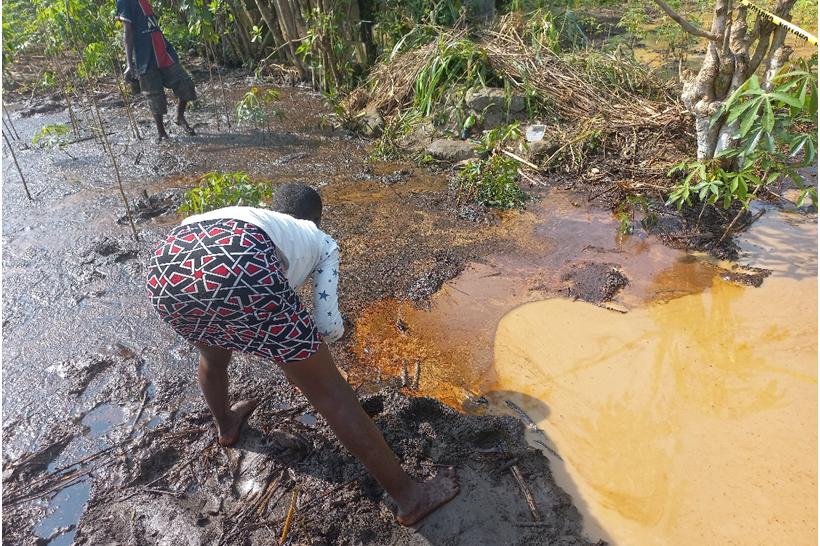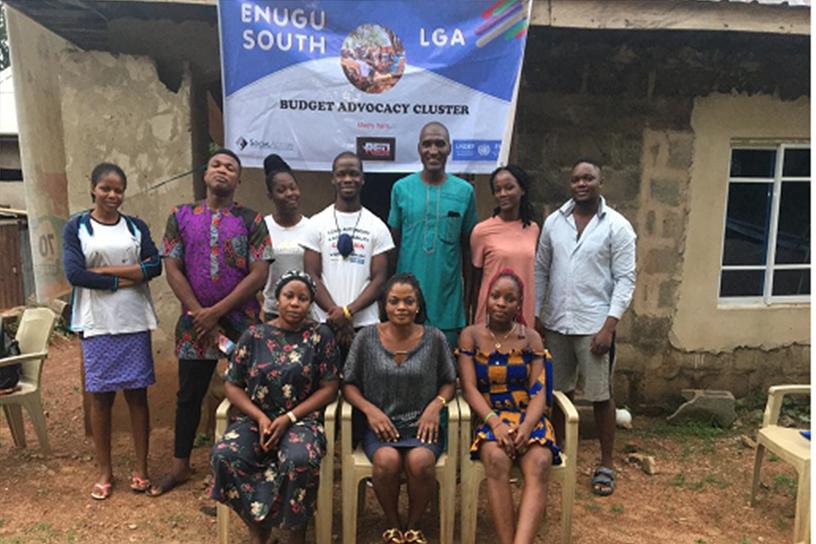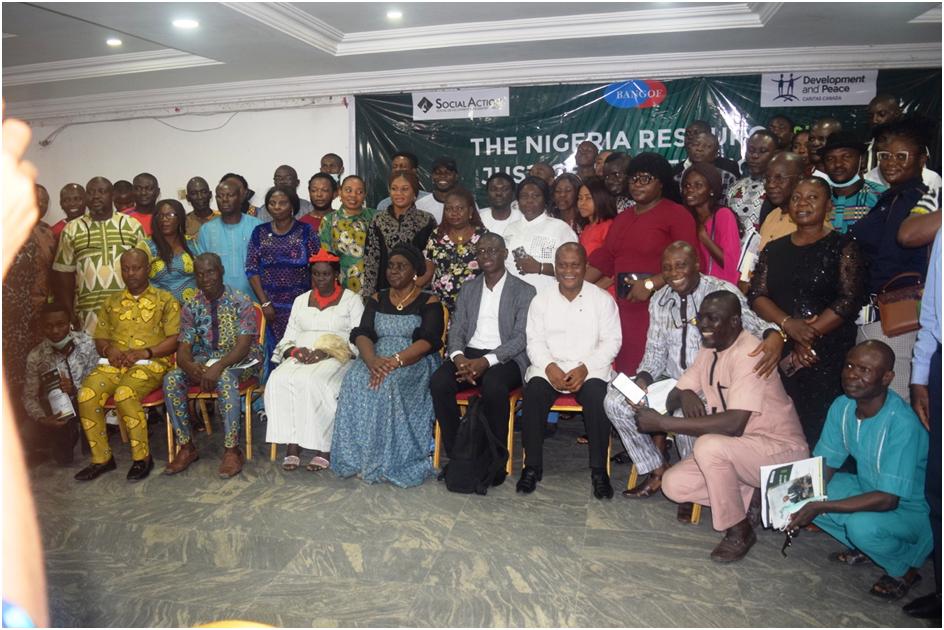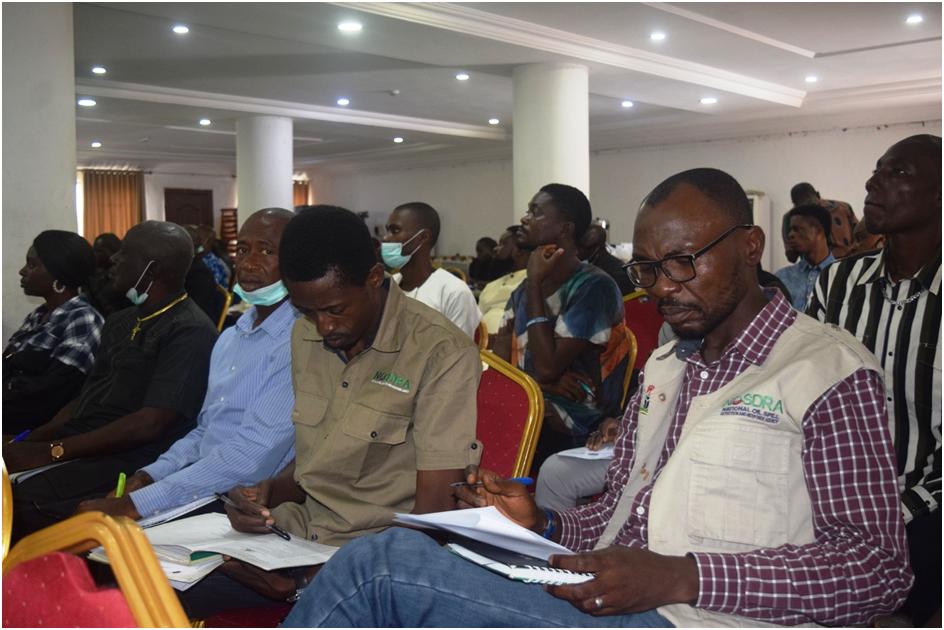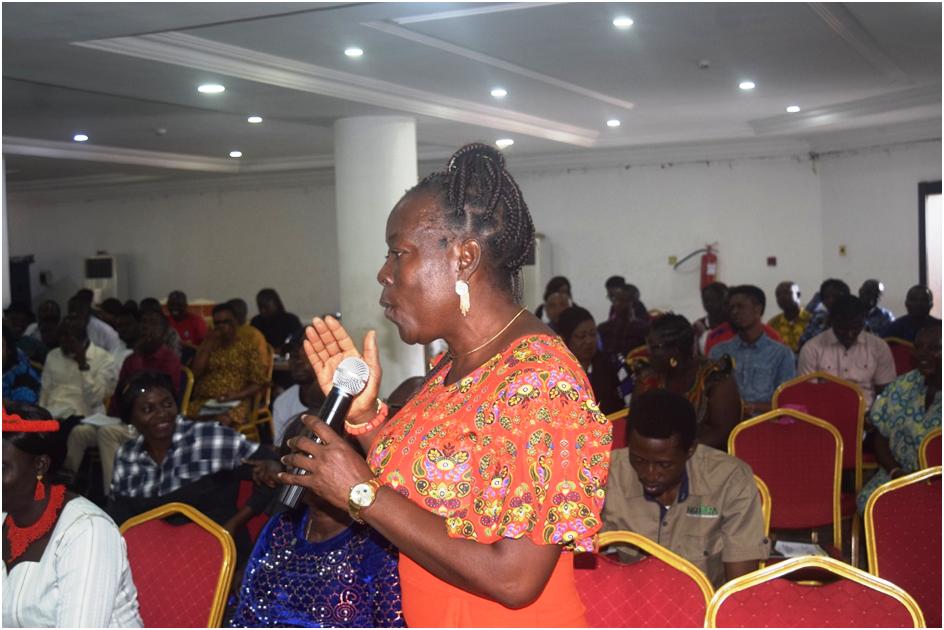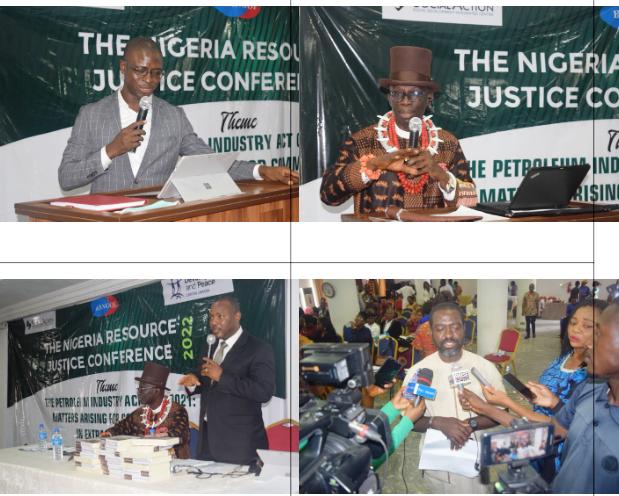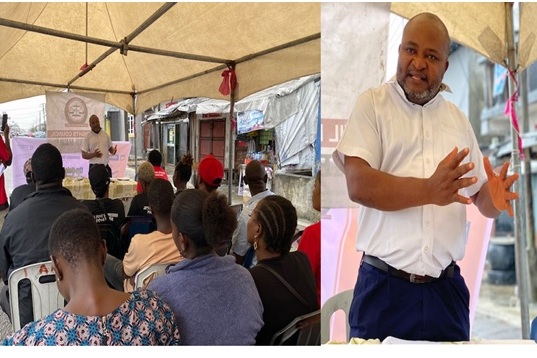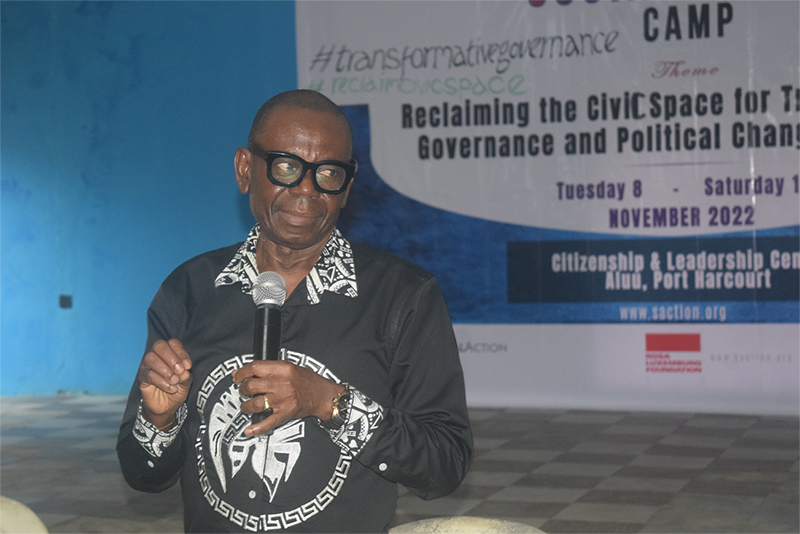
Introduction
True to its national spirit, the Social Action has convened us to discuss a theme of national and most -timely importance, “State Repression and Shrinking Civic Space in Nigeria” a topic choice for which the Programme Department ought to be congratulated. Today, many Nigerians and the international community observe that representative democracy is in crisis, and note a decline of confidence in public institutions. It is within the overall context of this camp meeting I was invited to deliver this keynote address which to my mind, underscores the fact that is a crisis our democracy. If there is, how does it manifest itself in the different geo-political zones of the Country? Furthermore, can we say something about the capacity of Nigeria’s democracy that may be pertinent beyond those differences? These are, of course, vast questions on which I want to offer some very general reflections.
To begin with, let me ask: is there State Repression? If there is, is it shrinking the Civic Space? If it is, how does it manifest itself across the country? Furthermore, it may be, and I will argue this that democracy itself is intrinsically characterized by perpetual tensions that are both worrisome and a testimony to its best qualities and indeed, strongest capacity. All through the conversations at the opening ceremony yesterday, we listened to several speeches that highlighted various aspects of the crises. Deep concerns have been expressed in many of them. Fortunately, deep concern is not despair. In this present-day world, haunted by the ills of war, domestic and international violence, social inequality and environmental damage, what I will say will strike a note of cautious optimism among those justified concerns about the civic space in Nigeria.
The second point you all know well. There have never been in the world as many formally democratic regimes as there are today. Moreover, there have been as many rulers claiming that their regimes are democratic. Being democratic or claiming to be democratic, might be compared to a currency: credibly holding it adds capital to those who claim it as their type of rule. Underlying this fact is that in most parts of the world, the ultimate claim to legitimacy, or at least to the acceptability, of political rule must lie in the type of popular consent expressed in the democratic process.
Conceptual Clarification
It is apposite to emphasize the point that a country can have a democratic regime, or a political democracy. These are two basic components. First of all, elections are reasonably fair so that the opposition has a reasonable chance of winning. The elections should also be decisive in the sense that whoever wins may occupy the offices for which they have competed, and endure in their tenure as it is constitutionally prescribed. Secondly, a democratic regime includes a set of rights or political freedoms such as freedom of expression, of association, of movement, of access to non-monopolized information. The reasonable effectiveness of these rights is a fundamental condition for holding fair and decisive elections before, during and after them. These are the basic defining characteristics of political democracy, or equivalently of polyarchy as stated by Robert A. Dahl, to which O’Donnell (2006) added the requisite of decisiveness. He stated two caveats in this regard. One is that the regime thus defined is absolutely fundamental to democracy.
However, he does not believe that the meaning of democracy ends there. Democracy is not ultimately based on voters, but citizens, and citizenship, in addition to the political dimension brought about the regime, also includes civil, social, and cultural dimensions. A fuller, better democracy is on that enacts and supports a wide gamut of all these rights. It is also one that resolves, by means that are legally and constitutionally prescribed, conflicts and trade-offs that unavoidably arise from these rights.
The Nigerian Situation
Throughout history, social movements- small groups though loosely connected but united by a shared purpose, have created transformational change by the powerless banding together against the powerful. In contemporary world, digital technology has intensified these potent forces making it much easier of groups of like-minded people to connect and coordinate actions against rampaging apparatus of the state. This implies that there is a greater opportunity to create change now than ever before (Satell, 2017). Yet, it appears that Nigeria is not a favourable environment for democracy because the governing elite always preferred the reputation of being democrats to the notorious inconveniencies of practicing democracy. Little wonder, most of the country’s leaders are enjoying the reputation of being democrats without the inconveniences because they have trivialized democracy to the extent that its practice is no longer threatening to positional incumbents. The Nigerian situation, like any other African country, underscores the fact that what is being foisted on Africa is a version of liberal democracy reduced to the crude simplicity of multi-party elections.
The term, “Civic Space” is often used to describe those human rights which facilitate the ability of individuals and groups to participate in the polity and governance of their country. According to the United Nations Human Rights:
“Civic space is the environment that enables civil society to play a role in the political, economic and social life of our societies. In particular, civic space allows individuals and groups to contribute to policy-making that affects their lives, including by accessing information, engaging in dialogue, expressing dissent or disagreement, and joining together to express their views.”
The Organization for Economic Co-operation and Development (OECD) defines the Civic Space as the
“set of legal, policy, institutional, and practical conditions necessary for non-governmental actors to access information, express themselves, associate, organise, and participate in public life”.
It entails the policies, laws, institutions and practices that provide a conducive atmosphere for citizens and civil society organizations to thrive as they promote progressive liberties, freedoms, and spaces for institutional growth. This creates and empowers structures necessary for social, economic and political mechanisms necessary for societal growth.
Similarly, a Transparency & Accountability Initiative Report noted:
“…civic space is defined as the set of conditions that determine the extent to which all members of society, both as individuals and in informal or organized groups, are able to freely, effectively and without discrimination exercise their basic civil rights. Principal among these are rights of information, expression, assembly, association and participation.”
From the above, certain constitutionally-protected rights are implicated when the civic space is closed or obstructed, namely: Freedom of Thought, Freedom of Expression, Freedom of Association and Freedom of Assembly. These mentioned freedoms, enshrined in Chapter IV of Nigerian 1999 Constitution (as amended) are interconnected and simultaneously facilitate the citizens’ engagement among themselves and with the government and the general public. As such, any interference with any of these freedoms may invariably result in the deprivation of other rights. Again, by virtue of these constitutional guarantees, every citizen is a recognized participant in the civic space arena.
Freedom of Expression guarantees the right to express views on an issue through any media of choice irrespective of how irking those views are. Press freedoms are concomitant to this right. By guaranteeing the Freedom of Thought, the Nigerian Constitution protects the rights of citizens to hold and express religious or political views, or agitate for the betterment of specific target groups, tribes and ethnic federations without let or hindrance. Closely intertwined with the freedom of thought and expression are the association and assembly freedoms permitting citizens to form and belong to any group for the propagation of their thoughts and ideas, or belong to any political party of choice, hold and disseminate political ideologies. Accordingly, they can carry out protests, hold rallies and form pressure groups. Against this backdrop, the persecution of members and apologists of the Indigenous People of Biafra falls within the purview of civic space infringement within the context of the right to free assembly and free association. In the same way, the selective prosecution of members of an opposition political party is not inconsistent with politically-motivated restrictions designed to stifle dissent and limit democratic participation.
Are Civic Spaces Open or Closing?
According to Michelle Bachelet, United Nations High Commissioner for Human Rights during the Dublin Platform for Human Rights Defenders in October, 2019, “Civil society participation is the lifeblood of any healthy democracy and society. When civil society channels flow freely, it means vibrant debate, freedom
For various reasons, governments around the world deploy various tactics to restrict the ability of citizens to engage, critique government failings or hold dissenting views. Some of the reasons advanced for these restrictions range from re-election ambitions to restraining political opposition or covering up the excesses of the governments. Civic spaces are closed when the limitations on citizen’s rights pose severe constraints to their ability to organize freely, including free expression, assembly and association, making civic engagement between themselves and other state and non-state actors difficult. Other notable manifestations of closing civic spaces take the form of repressive laws—such as the various anti-social media bills at the National Assembly; overbroad interpretation of existing laws—like the frequent use of the Cybercrimes Act to punish social media users; the retention of draconian laws—which includes charging journalists or social critics for the crimes of sedition and criminal defamation; and the excessive use of force by security agents to quell protests and punish citizens beyond the prescriptions of the law.
Before now, particularly under the military rule, journalists and activists were the major targets of government crackdowns. Advancements in digital technology have helped to expose the tactics used to perpetuate these crackdowns. Technology has also widened the umbrella of activism, allowing ordinary citizens to have greater access to online and offline spaces for civic action. The internet and social media easily handed citizens a limitless tool for civic engagement, expanding the civic space beyond the traditional media, the streets and town halls. Likewise, the scope of government restrictions has widened, extending to ordinary citizens whose actions make governments uncomfortable and subject them to greater scrutiny.
The excesses in government’s arbitrariness tilt heavily against women participation, especially in Nigeria. Clampdowns on social media, unbalanced quota systems, societal stereotypes and lack of enabling environments have restricted the participation of women, especially in the area of politics and governance. Women voices are stifled and restrained, and political parties are not ready to actualize their mandates regarding the candidacies of women politicians. Equal gender participation is a facade on paper, just waved by Nigerian politicians and policymakers to restrict dissent and throw crumbs at women affected by the shrinking space they have found themselves in.
Democracy and the Situation of Women
A study by the Nigerian Bureau of Statistics in 2018 shows that in the years between 1999 to 2015, 6% of councillors (at the local government) were women, 24% of judges in the federal court were women, and an average of 7% of each type of high-level government officials and senior administrators were women. There were no female central bank governors. According to the report, “the role with the highest percentage of women at 28% was the special assistant role”. This shows the depressing extent of women participation in political civic spaces.
Governments are making the civic space a tug of war – one of survival and strategic positioning by civic organizations and participants fighting against a system designed to kill activism and civic engagements. Civic actors are threatened and bullied with harsh policies targeted at dampening “dissent” against authorities. Being a female player in the civic industry does not help matters as cultural, political and social elements exist to hinder the impactful work of participants of the female gender, thereby contributing to gender inequality in the already shrinking civic space.
Challenge of Feminism
Historically, the very design of democracy and representation has continually excluded women. In ancient Greece, cradle of democratic experiment, democracy was vigorously exclusive -: the citizen was male and born Athenian parents. Theorists who examined social contract and social sovereignty of the people at best, ignored women, and at worst, foresaw their confinement to private and family spheres. The greatest revolutions that paved the way for representative democracy-the Glorious Revolution of 1688, the American Revolution (17775-1783) and the French Revolution (1789) did little to promote the access of women to governance of the Nation. In fact, in France, the abstract individual- the notion underpinning republican universalism – padlocked the citizenship of women until, the beginning of the 22st Century an era when a highly stimulated debate on the subject of parity emerged.
Today, representative democracy, presented an ideal includes women or at least, those who do not think so keep quiet. Unfortunately, practice in contemporary times does no honour to this ideal. The proportion of women representatives in the National assembly is a case in point. Studies have shown that a multitude of factors influence women’s access to legislative arenas. These factors may be grouped into three broad categories: cultural, socio-economic and political. Culture refers to the values, standards, beliefs and attitudes that control a society and its institutions, and that are inspirations for the population’s ways of being, talking and doing.
Socio-Economic Factors: have to do with the conditions that lead women to envision careers in the field of politics. An improvement in women’s socio-economic conditions should favour their increased presence in the National Assembly.
Political factors: This influence the demand for candidates and, more specifically, it determines which citizens from the “eligible pool” are deemed qualified for a political position and worthy to be put forth as candidates. The factors fall into two categories or dimensions: The political rights of women and the profile of the political regime. The first dimension refers to the political citizenship of women. The second dimension: The profile of the political regime has enjoyed a greater deal of attention (these are examples of the State Structure (Unitary or Federal) the structure of the Legislature (Unitary or Federal) the number of seats, the party system etc.
Conclusion
It is necessary for state actors to recognize the importance of women’s participation in Nigeria, especially in an environment as crucial as the civic political space.
The equitable participation of women in public life is essential to building and sustaining strong, vibrant democracy:
“the full and equitable participation of women in public life is essential to building and sustaining strong, vibrant democracies. When women are not participating in politics, it’s less likely that policies will benefit them. Women need to participate to bring attention to issues that uniquely affect them, and to change attitudes towards gender.” (Damilola Agbalajobi, 2022).

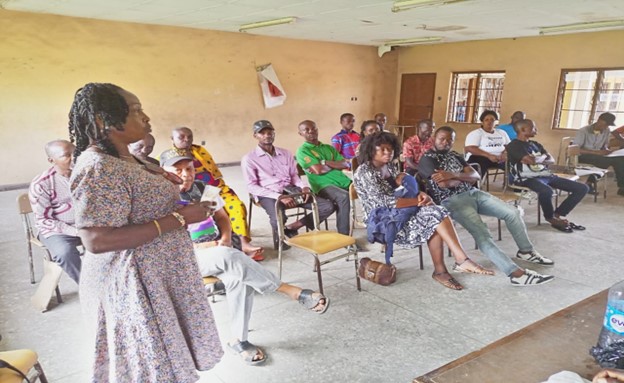
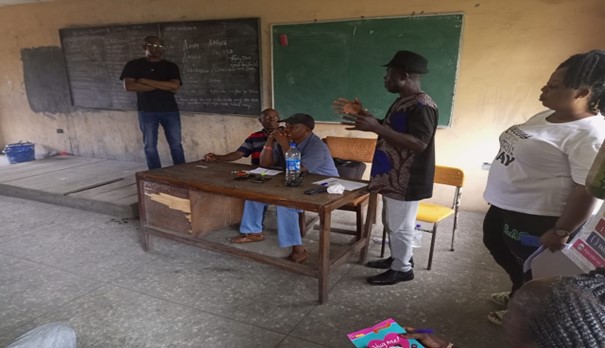
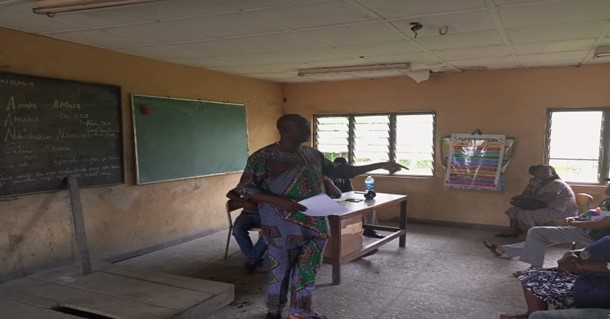
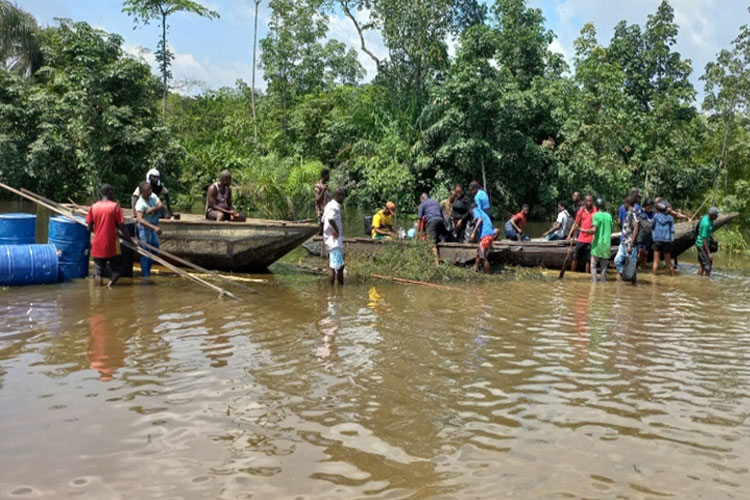
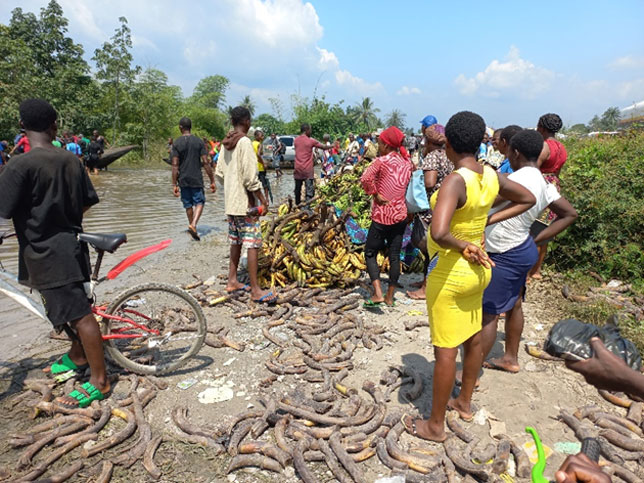
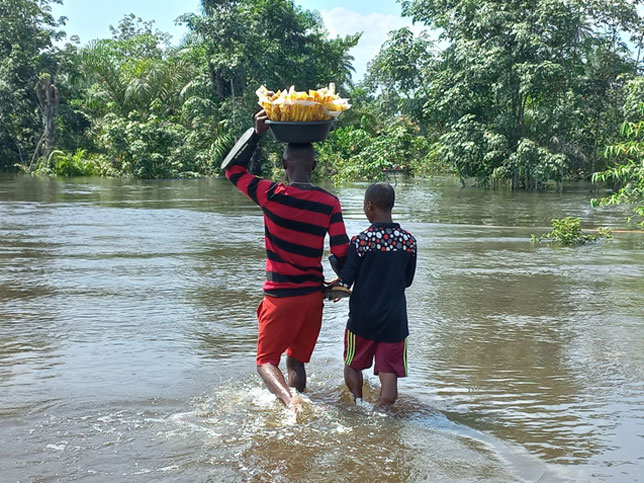
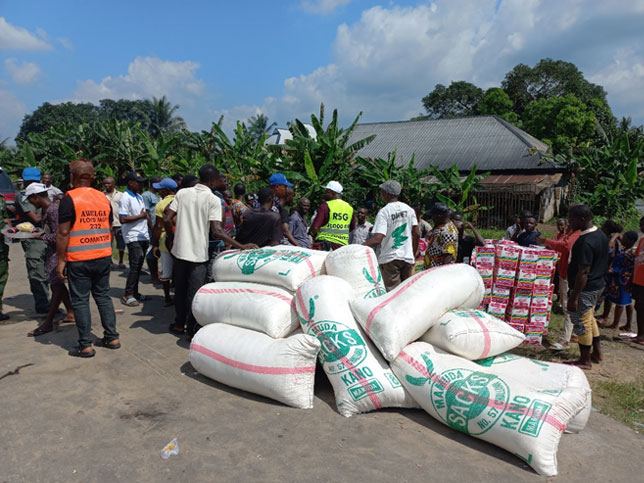
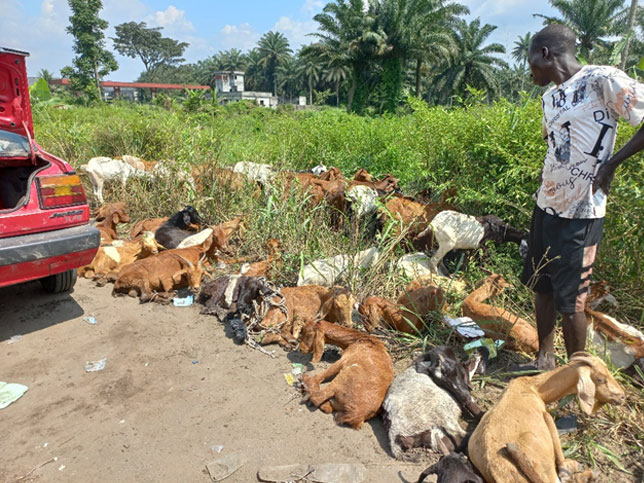 Stranded goats’ merchants with their goats at the scene
Stranded goats’ merchants with their goats at the scene